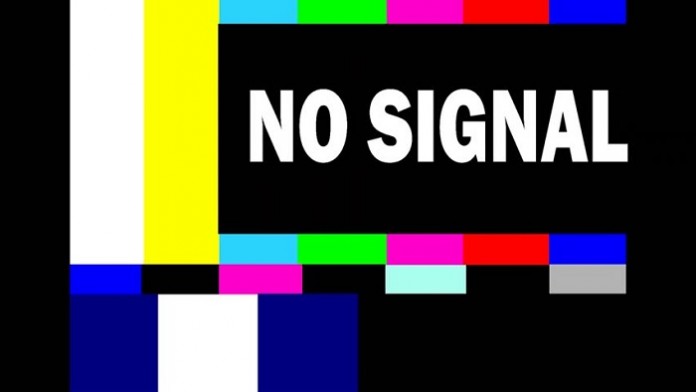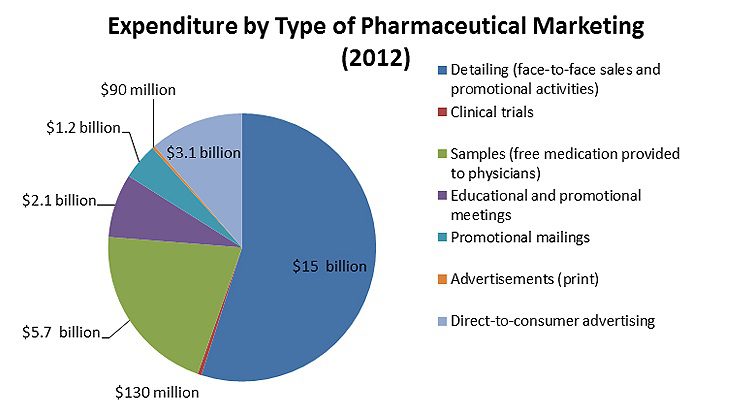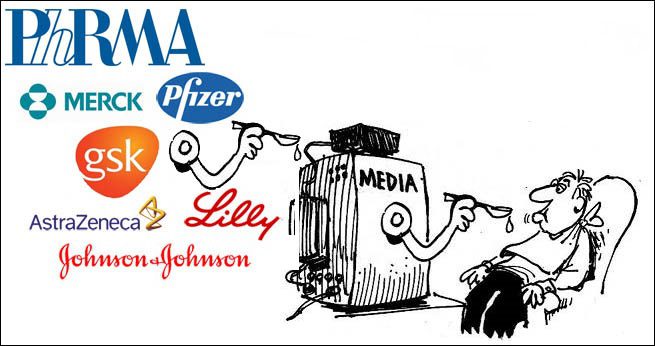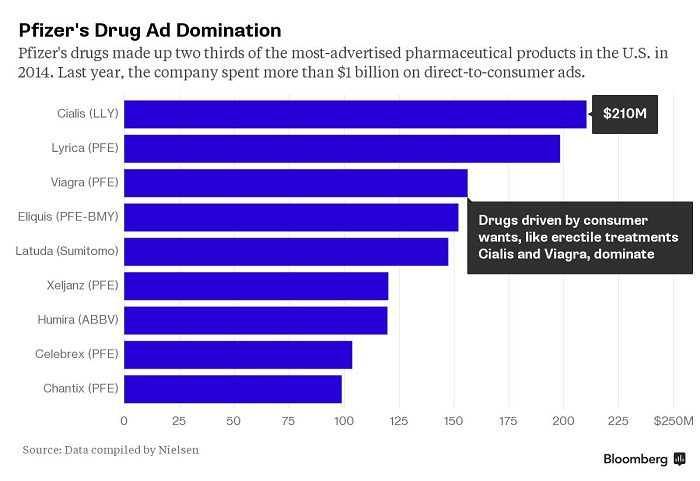A Comprehensive Review of Vaccines — Part 10 of 12
If you’ve read this article starting with Part 1, you may be asking yourself: why have I not seen or heard this information on the news or in the paper? This is not trivial information and there’s lots of evidence to support a skeptical view of vaccines. We have the editors of the most prestigious medical journals telling us in no uncertain terms that the data in these journals cannot be trusted. We have expert researchers like Dr. Healy and Dr. Jefferson walking us through actual cases exposing in great detail exactly how research is being manipulated to favor pharmaceutical products, including vaccines. There’s even more reason to be skeptical of vaccine manufacturers themselves. Why isn’t this information making headlines? Why aren’t our doctors informing us of the true risks of vaccines, as shown by the tracking system and vaccine court? In part 10 we show you why this information is not being covered by traditional media sources.
David Versus Goliath
Let’s take a look at the two opposing sides of this debate. One side is a trillion-dollar industry that generates enormous profits through the sale of prescription drugs and vaccines, while the other side gains nothing from their stance besides health, safety, and discovering the truth. The motivation for vaccine skeptics, by and large, is just to maintain a right to choose whether they and their children are vaccinated. Parents want to be able to discern the true costs and benefits of each vaccine and to share information about vaccines that is not readily accessible.
There is an information war going on in the world of medicine, and the pharmaceutical companies have more money and resources at their disposal than ever before. It makes David and Goliath look like a fair fight. The pharmaceutical industry has spent hundreds of billions of dollars in marketing in the last decade. With that type of money, you can create your own reality. The pharmaceutical industry probably has more money budgeted for office supplies than the vaccines skeptics have in their budget to get their message out. The vaccine skeptic movement is predominantly grassroots, while the pharmaceutical industry can afford to create an army of loyalists using large financial incentives as well as clever and very effective marketing tools such as astroturfing.
As we saw in the first four parts of this series, once you have influenced the doctors, medical journals, medical schools, policymakers, legislatures, and regulatory agencies, the hard part is done. When an industry has total cooperation from the medical industry and billions of dollars to spend on marketing, it’s safe to say that they have complete control of their message. And that is precisely what we see happening in the pharmaceutical industry. Pharmaceutical companies have permeated every form of media in existence, with a multi-pronged, multi-level, sophisticated strategy that places them in the position of dictating what gets reported and how it gets reported.
$27 Billion on Marketing Alone
In 2012, the pharmaceutical industry spent more than $27 billion on marketing, which makes them high-level VIP clients to any media outlet with which they do business. Advertising agencies dream of clients as well-heeled as the typical large pharmaceutical company and will jump through rings of fire to keep them satisfied. The television networks also count on pharmaceutical money to keep their companies profitable. The pharmaceutical industry is an economy in and of itself and a lot of people and organizations have come to depend on that revenue to stay afloat. The last thing these people want to do is bite the hand that feeds them, because not only will they lose that income, but also because the pharmaceutical industry can be an extremely dangerous adversary. Many people’s professional careers have been ruined just for being on the wrong side of the issue. Dr. Wakefield is a perfect example of this, as are many other doctors and people who publicly come out against their products.
Traditional Media is Not a Viable Source of Information
This article references only a portion of a vast sea of information that is surfacing about the safety and efficacy of vaccines. Even so, just the information we’ve covered here sounds like it would be breaking news. It would certainly seem worthy of a story, a mention, some investigative journalism. What gives?
Traditional media outlets have a huge stake in keeping their biggest advertisers happy. Just count the number of prescription drug commercials you might see while watching television on a given night. Pay particular attention to the news ads. Pharmaceutical companies have enormous marketing budgets, and they spend vast sums of money on television ads, particularly during the news. It is estimated that 30-40% of ad revenue for most networks comes from pharmaceutical companies. It would be extremely bad for business to run news stories that conflict with the agenda of your biggest advertiser. Don’t think for a second that their editors don’t pay close attention to unfavorable stories about their largest clients. The evening news is brought to you every night by the pharmaceutical industry.
The truth is, the media is one of the drug companies’ most important and effective tools. You may have noticed that news anchors on different channels use the same exact language to report on issues related to public health. Likewise, you may have noticed a propensity for sensationalizing stories related to an outbreak, for example, whereby relatively isolated incidents receive disproportionate coverage. Thus, the seed of fear is planted and suddenly, viewers share a growing concern about a perceived impending global epidemic. In turn, vaccine uptake increases, along with public fear. Fear is the ace up the sleeve of drug companies. No matter how terrible their behavior and no matter how utterly they fail to prove the safety of their products, drug companies offer us the perception of protection.
A study published in the Oct 1, 2008 issue of the Journal of the American Medical Association found that “News articles reporting on medication studies often fail to report pharmaceutical company funding and frequently refer to medications by their brand names despite newspaper editors’ contention that this is not the case.” This finding alludes to the tip of the iceberg regarding the relationship between the pharmaceutical industry and mainstream media.
Robert F. Kennedy, Jr., is an activist, attorney, and nephew of the late President. He is pro-vaccine. He is also pro-informed consent, pro-transparency and pro-reform regarding what’s in our vaccines. Notably, he is also very outspoken about the cozy relationship between large network media and the pharmaceutical industry. In a May 2015, interview with former Minnesota governor Jesse Ventura, he said: “I ate breakfast last week with the president of a network news division and he told me that during non-election years, 70% of the advertising revenues for his news division come from pharmaceutical ads. And if you go on TV any night and watch the network news, you’ll see they become just a vehicle for selling pharmaceuticals. He also told me that he would fire a host who brought onto his station a guest who lost him a pharmaceutical account.”
“I ate breakfast last week with the president of a network news division and he told me that during non-election years, 70% of the advertising revenues for his news division come from pharmaceutical ads.
– Robert F. Kennedy Jr.
In the same interview, Mr. Kennedy quoted Sharyl Attkisson, Emmy award-winning investigative journalist and author of the New York Times bestseller Stonewalled, as saying that the vaccine debate is the ‘most censored controversy of the century.’ Mr. Kennedy noted that there is not a newspaper in the country that would publish his editorial on the topic of vaccines and the pharmaceutical industry.
The truth is that, if it ever truly lived, investigative journalism is dead. There are only a handful of real investigative journalists. We live in a time with so much information and so very little actionable knowledge.
You Cannot Do A Little Vaccine Research
Most people will do a cursory search on vaccines and conclude that they are safe and effective. It’s only when you put in a few hundred hours of detective-like research that you can begin to pierce the carefully created facade to see the level of deception that is taking place regarding pharmaceutical products. To get an objective perspective on this complex topic you must be able to research beyond traditional information sources. The internet can be an excellent source of information, but it is important to be discerning. The internet, in particular, if rife with disinformation sponsored by the drug industry and made to appear as if the source is outraged citizens or scholarly scientists. There are also a lot of unreliable sources on both sides of the debate which make it necessary to be smart and cautious about your sources.
Researching vaccines is not fun either. Not only does it take an enormous amount of time and energy, but the further the research takes you, the more your eyes are opened to some ugly truths about the pharmaceutical and medical industry that most people would rather not learn, myself included. Not to mention, it can be difficult to even know where to begin when researching vaccines. That is why another purpose of this article is to provide a starting point with as much credible information as possible, all in one place, for people who are interested in learning the other side of the story about vaccines.
Vaccine Research is Tricky
Pharmaceutical companies are spending billions of dollars on traditional marketing, as well as online marketing. They surreptitiously use skeptic or science-themed blogs as well as ‘astroturf’ groups to discredit people coming forward with information that conflicts with their agenda. The drug manufacturers’ marketing campaign permeates all forms of media. They design fake networks highlighting all the key questions and search terms someone would use when researching facts about their products.
Sharyl Attkisson is an Emmy award-winning investigative journalist and author of the New York Times bestselling book called Stonewalled. Attkisson explains how special interests, including pharmaceutical companies, use clever tricks to create the false public sentiment. She gave this TEDx University of Nevada talk in February 2015 titled Astroturf and manipulation of media messages. Attkisson reveals how characterizing vaccine skeptics as ‘quacks’, ‘cranks’ and ‘nuts’ is an effective tool that causes us to dismiss critical information.
Sharyl Attkisson explains that there is an agenda that determines what we see on the news as well as what doesn’t get reported. She describes a carefully constructed narrative by unseen special interests, designed to manipulate your opinion – a ‘Truman Show-esque’ alternate reality, all around you. Attkisson goes on to explain that “incredibly powerful propaganda and publicity forces mean we sometimes get little of the truth.” She notes that these special interests have so much time and money that, not only can they afford to spin the news in favorable ways, but that they can also hide the fact that they are behind it.
Attkisson explains that ‘astroturf’ methods are now more important to special interests than lobbying Congress. She explains astroturf:
… special interests disguise themselves and publish blogs, start Facebook and Twitter accounts, publish ads, letters to the editor or simply post comments online to try to fool you into thinking an independent or grassroots movement is speaking.
Industries use astroturf to make you think that there is strong support for or against an agenda when there’s really not. The goal of astroturf methods is to get you to line up your opinion with what you perceive to be the opinion of most others. (See conformity bias, below.)
She notes that astroturfers create controversy about those who disagree with them and “attack news organizations that publish stories they don’t like, whistleblowers who tell the truth, politicians who dare to ask the tough questions and journalists who have the audacity to report on all of it.”
Wikipedia is an “astroturf’s dream come true,” according to Attkisson, who notes that counter to its claim, not just anyone can edit it. She says, anonymous Wikipedia editors “control, co-opt, skew, reverse and delete information on behalf of special interests.” She cited a medical study that found that Wikipedia contradicted scientific medical research 90% of the time.
Attkisson points out some of the people and things that are bought with special interest money:
• Google search engine results in ranking
• Bloggers, social media account holders
• Wikipedia editors
• Nonprofits organizations
• Doctors
• Advisory board members
• Regulatory board members
• Professional writers
• Continuing education for doctors
• Research
• Online commentators
Attkisson offers some pointers about how to recognize astroturf:
• Inflammatory language like ‘crank’, ‘quack’, ‘nutty’, ‘lies’, ‘paranoid’, ‘pseudo’ and ‘conspiracy.’
• Characterizing something as ‘myth’ and then claiming to ‘debunk’ it (charged language)
• ‘Controversializing’ or attacking the people, personalities and organizations surrounding an issue, rather than addressing the facts
• Reserving public skepticism for those who question authority; those who expose wrongdoing, rather than the wrongdoers
According to Attkisson, we are living in an “increasingly artificial, paid-for reality.”
Astroturf is Effective
Here’s a real-life example. You are a bright, well-educated person. Your friend mentions that no published double-blind placebo-controlled clinical trials are showing that vaccines are safe. You took enough science classes to know that this kind of research would be the standard required for something so important. You briefly question your friend’s connection with reality, because, of course, that cannot be true! You realize that the quickest way to refute this is to do a quick internet search. Here’s one of the first results that pop up in a google search. This site looks credible, and the author is well-credentialed – a cell biologist. Her tone is a matter of fact, and there’s no reference to ‘quacks’ or ‘anti-vaxxer nuts’. She tells you just what you expected to hear: “There have been double-blind, placebo-controlled trials on vaccines – proving that they are safe and effective (see list at the end of this answer).” That’s a relief.
Wow. Ok. She even cites the research! There’s a table at the end of the article that lists seven studies. Well, it doesn’t actually list them, but it tells you where they were conducted, i.e.: U.S., Argentina, Philippines, etc. The chart doesn’t list any specific vaccines that were tested, except for the flu vaccine. You’re clicking on them, but they’re not linked to anything. There is no information about who conducted the research, their methodology, or how to see the studies for yourself. Wait. They’re listed more fully down below. The author has picked seven studies, while there are currently 14 types of vaccines on the CDC childhood vaccination schedule. You scroll to the comments, and you don’t feel so sure anymore – this is going to require some digging to get at the truth. Do you just bookmark it for another day? Who has time to sift through these studies to know exactly what they mean or how they were conducted?
If you had some time, you might discover that the author writes for a number of publications and on a number of topics. She writes articles in favor of genetic engineering, pesticides, GMOs, neonicotinoids, and mercury in vaccines, among other things. She calls food grown with pesticides “conventional food,” and she calls vaccines “immunization.” Zoom info says that she works as a lab specialist at Hoffmann-La Roche, which is to say, the U.S. prescription drug unit of the Roche Group. She’s on the payroll of a company that spent $5,677,320.00 on lobbying in 2015.
Because of its low-key tone and the appearance that it cites research, the above example can dupe even the well-educated scientific consumer who doesn’t have time to sift through the research. It doesn’t try too hard and maintains a civil tone, and this is appealing to academics and researchers.
Here’s another common example of astroturf. This example typifies drug company advertising campaigns targeting ‘everyman.’ Not unlike a few of the media outlets enjoyed by this demographic, the voice behind this brand is snarky, sarcastic, outraged, scapegoating, and fed up. The author frames vaccine skeptics’ plan as one of ‘hate’ and describes them as a ‘cult’ whose behavior is ‘atrocious.’ He baits the reader to become outraged along with him, at the ‘fake debate’ of those who question vaccine safety and effectiveness and the research behind them. He likens vaccine skeptics to Hitler, somehow, and says they tell ‘lies.’ Perhaps not surprisingly, this blog also ‘debunks myths’ about the harm of GMOs, the link between pesticides and autism, and the benefits of organic food. Sound familiar?
There is no shortage of astroturf on the internet regarding vaccine safety and efficacy. These kinds of articles often pop up early in search results because they pay for that privilege. It’s not cheap to pay for this kind of billing, in case you still had any ideas about these being independent, individual bloggers as they claim.
Here’s another example of ‘every man’s’ astroturf. Voices for Vaccines appear to be a grassroots organization by and for parents in support of vaccines. Here is a recent article that explains who is actually behind this organization and where they get their support. Here is another article that explains, in excruciating detail, the convolutions of their relationship to those who stand to make a nice profit from the group’s efforts. Whatever an individual parent member might think, the pharmaceutical industry and those who do their bidding, understand who is steering the ship.
Why are We So Compliant?
It’s clear that pharmaceutical companies have a significant influence on setting the public health agenda. They have co-opted people in key positions who steer the process and control the message that impacts product sales, including vaccines. Typically only topics for academic discussion, there are several social, cultural, and psychological phenomena which are always at work in the background, which keep us from the truth. These phenomena are well understood by the pharmaceutical industry and are being used to good effect in the campaign for vaccines. The goal is to subtly convert the public into allies. To the extent that we remain blind to these factors, we risk becoming unwittingly complicit in the drug company agenda and, thereby, we transform into our own worst enemies. To the extent that we feel compelled to staunchly align with those who scapegoat vaccine skeptics, we are the most effective part of the most successful marketing campaign in history.
Cognitive dissonance: The uncomfortable feeling we have when there is a discrepancy between what we already believe to be true and new information or interpretation. When we learn something new which contradicts what we have always believed, we are likely to avoid it. This is a psychological phenomenon that is well researched and for which we have many examples.
This means that if, for example, I’m a parent who has worked hard to do the right thing for my child, having them vaccinated according to the schedule recommended by my pediatrician and the CDC, then I am less likely to entertain any new information that tells me that those vaccines could harm my child. The more children I have and the more vaccines they’ve had, the harder I will subconsciously work to avoid new information that contradicts the safe and effective message. It’s not something I do on purpose, it’s a psychological mechanism that protects me. If I really like and trust my doctor, or if I’ve worked as a pharma company sales rep, or if I’m part of the medical establishment, all of these would only increase my cognitive dissonance and thereby, my resistance to conflicting information. The Hippocratic Oath of physicians, whereby they promise to first, do no harm, helps us understand the almost intolerable level of dissonance they might experience if they were to consider data showing that vaccines are neither universally safe, nor effective. This phenomenon helps explain why your doctor shuts down when you bring up certain research or ask particular questions. You can imagine hundreds of more possible scenarios that will help explain why new data and information sometimes falls on deaf ears of otherwise intelligent and kind people.
Conformity bias: This refers to the human propensity to go with the crowd, to be in agreement with our group, even when they’re wrong. It’s more comfortable to go with the flow. If I’m part of mainstream American culture, my group believes that good parents vaccinate early, often, and completely. To do otherwise would be bucking a trend. It feels uncomfortable to be an outsider. Parenting is hard, and we all need support from other parents. This support is much easier to come by when I’m on the same page as my friends, my pediatrician, the CDC, FDA, and every media message we hear about vaccines. The recent hype about herd immunity has only served to heighten this ‘go along to get along’ mindset. Even if I do not want to go along with the crowd, I most certainly do not want to identify with the ‘anti-vaxxers’ who, I’m told, threaten the safety of us all.
Systemic Bias: The built-in tendency of a process to support particular outcomes. We live in a capitalist culture and the profit motive rules. Our sources for vaccine information spring either directly from a business or are funded by a business whose primary goal is to thrive financially. The pharmaceutical industry funds, either directly or indirectly, most vaccine research. They also fund the journals that print the studies, the media that advertise their products, and reports on research findings as well as the doctors who dole out vaccines. They even fund the agencies charged with regulating them! Even if I were being exceptionally generous and presumed no intent to mislead, I’d still have to admit that this looks like a ridiculous example of finding out the truth.
Cultural hegemony: Refers to what happens when powerful people or groups use their influence to shape what we perceive as true, to the extent that it is eventually perceived to be common sense. Often, what is in the best interests of the most powerful is not in the best interests of the masses. Some people think it’s just common sense that vaccines are safe and effective. Cultural hegemony is always at work in the background; it isn’t something we usually recognize or talk about. It’s an academic idea that explains how those who amass the most financial power, thereby wield the greatest power in shaping reality. That reality will always be one that boosts their bottom line.
Summary
Information about pharmaceutical drugs and vaccines has been completely compromised. From clinical trials to the medical journals and media that reports on them, it seems that these powerful corporations have left nothing to chance. They have literally indoctrinated a nation into believing that anyone who even asks questions about their product is a quack. But increasing numbers of people are waking up to this fake reality they have created. Younger generations do not consume traditional media sources and these companies will find new ways to try and influence them. Either way, there is new information coming out every day that contradicts the official story and it’s becoming more difficult for them to control the message. Too many people are waking up to the fact that what we are being told is not true.
This is Part 10 in the 12 part series: A Comprehensive Review of Vaccines
Part 1: Why Are So many People Choosing Not To Vaccinate?
Part 2: A Closer Look at Pharmaceutical Companies
Part 3: Vaccine Policymakers and Conflicts of Interest
Part 4: How The CDC, FDA and WHO Lost the Trust of Vaccine Skeptics
Part 5: Are Vaccines Safe & Effective?
Part 6: What Are The Real Risks of Not Vaccinating in the U.S.?
Part 7: Herd Immunity, Shedding and the Questionable Science Behind Vaccines
Part 8: Did Vaccines Really Eradicate Infectious Diseases in the 20th Century?
Part 9: The Conclusive Evidence Linking Vaccines and Autism
Part 10: Why Don’t We Hear The Whole Story About Vaccines?
Part 11: What Are Independent Experts Telling Us About Vaccines?
Part 12: Vaccines: The Greater Good or Greater Greed? – Conclusion
Speed the Shift is an independent group of researchers on a mission to find the truth about controversial topics. We utilize alternative information sources that are often ignored or outright censored by the corporate media in an effort to gain a broader awareness of relevant issues.





















